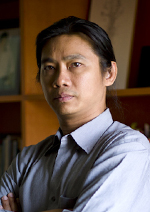Tibetan spiritual leader Dalai Lama is respected across the world for his struggle for the rights of his people and one of the most famous recipients of the Nobel Peace Prize, which is handed out in Norway every year.
But during his three-day visit to the country this week, leaders in Oslo were faced with a dilemma: human rights or salmon. This time, salmon won and the exiled leader was unable to meet with Norwegian government officials.
The conservative-led government in Oslo has decided to patch up its relations with China. These relations had suffered after the Nobel Committee awarded the peace prize to jailed Chinese dissident Liu Xiaobo in 2010, even though the committee is an independent body appointed by parliament.
Norway supplied 92 percent of all Chinese salmon imports in 2010, valued at US $83 million, but, according to media reports, this share has since dropped to just 29 percent after China, angered over the peace prize, imposed import restrictions and cancelled talks on a free trade agreement.
The snub of the Dalai Lama angered domestic opposition and international human rights group, but Prime Minister Erna Solberg defended the government’s position. “It has been a difficult situation that we have not been able to work internationally with China for four years. Before 2010 we had a running dialogue with China about human rights issues. Norwegian experts were helping the Chinese to develop a better justice system. After 2010 we haven’t been able to do this,” she told international media.

But China is not the only country that has benefitted from Norway’s recent decision to take a more pragmatic, although less principled, stand on human rights.
In Burma’s capital Naypyidaw, officials of President Thein Sein’s nominally-civilian government have been enjoying a good relationship with Oslo during the rocky democratic transition in the country and Norwegian businesses have been warmly welcomed by the government.
Norway’s Telenor was one of two foreign firms awarded a license to develop the telecom sector in Burma, Asia’s last frontier in mobile and internet expansion, while Norwegian state-owned firm Statoil received a license to explore one of Burma’s most promising offshore oil and gas blocks.
The close relationship between Oslo and Naypyidaw should come as a surprise, perhaps, as Norway was long one of the staunchest supporters of Burma’s democratic opposition movement and of the ethnic refugees stranded on the Thai-Burma border.
Aung San Suu Kyi was awarded Nobel Peace Prize in 1991 and Norway also funded Democratic Voice of Burma (DVB), allowing the opposition radio and television station to broadcast from Oslo.
In the late 2000s, this position began to gradually change and—even before the democratic transition initiated by the military regime began in 2011—Oslo signaled a willingness to move closer to the repressive military regime.
In January 2009, Norway’s then-Minister of International Development, Erik Solheim, visited Burma and afterward called for a review of Oslo’s Burma policy and putting more emphasis on economic engagement and less on international isolation.
In January 2012, then-Minister of Foreign Affairs, Jonas Gahr Støre, paid a two-day official visit to Burma. Oslo subsequently indicated it would no longer urge Norwegian companies to refrain from trade and investment in Burma.
In private conversations, Norwegian diplomats claimed that Oslo had “foreseen” the democratic reforms and this prompted the move towards a more pragmatic stance. Some even questioned the governing capabilities of the National League for Democracy and its leader Suu Kyi, but noted that the officials in Thein Sein’s government were able reformers.
Norway continued to take the lead on Burma’s international rehabilitation and worked with Japan to move the international community at the Paris Club of creditors to clear Burma’s foreign debt. Last year a staggering sum of around $6 billion was written off.
Thein Sein duly thanked Norway for its early support of reforms and helping squash Naypyidaw’s huge foreign debts.
Burma’s peace process, aimed at ending decades-old conflicts with an array of ethnic armed groups, could also count of Norwegian support. About $5 million was poured into the government’s Myanmar Peace Center, while a $2 million dollar scheme, the Myanmar Peace Support Initiative, would facilitate the return of refugees to their ethnic areas.
The project proved controversial among local aid organizations working with conflict-affected ethnic groups, who said it lacked transparency, failed to consult them and risked channeling aid into ethnic areas before genuine peace is established.
Norway still believes it can play a role in the peace process and Norwegian official said his government “can influence the ministers and the government in Burma” through its close ties.
But for some of Norway’s earlier friends from Burma—the democracy movement, rights groups and ethnic organizations—the success of Oslo’s new approach is less clear.
Among Burma’s democrats and dissidents many quietly wonder if Norway had a change of heart. Some question the need for an oil-rich nation like Norway to seek business deals in Burma.
A prominent Kachin ethnic rebel leader told me that they consider the Norwegians approach to the peace process “Taw Tha Htay,” an expression meaning a wealthy person from a remote area with limited understanding.
Yet there is no need to be pessimistic. Clearly Norway can still play an important role in promoting peace and democratic reform in Burma—in 2012 it invited Suu Kyi to pick up her 1991 Nobel Peace Prize—but for those working outside the current government, the question has become how?
Now that Burma’s democratic transition is entering a crucial phase and doubts are increasing about the intentions of the government and the military, Oslo should take a stronger stand in support of Burma’s pro-democracy forces.
Norway should make it clear what its goals are in engaging with Burma’s government and whether it will support its old Burmese friends in the opposition. These are questions that many Burmese who are still fighting for greater freedom feel they have a right to ask.
















